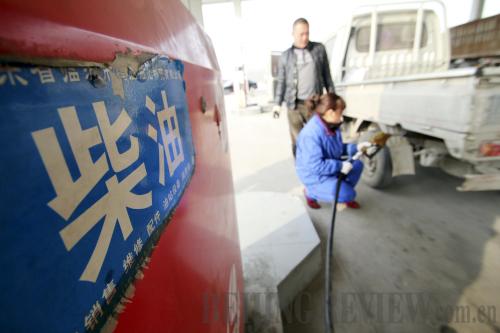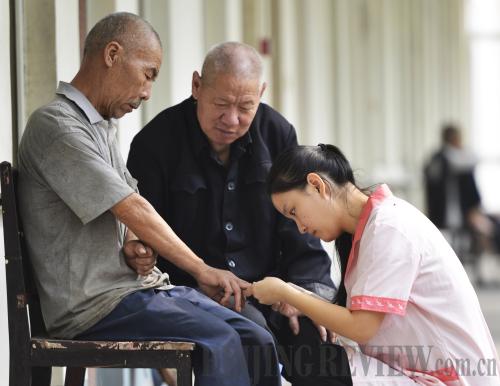|
 |
|
FUEL CHARGE: A staff member of a privately-owned gas station in Shandong Province refuels a truck (ZHANG CHUNLEI) |
Innovating input regimes
According to the guidelines, in the sectors of public services, resources, ecological and environmental protection and infrastructure, the government will promote the use of the PPP model, innovate investment regimes and actively expand investment channels for private funds.
Ou said that the NDRC is preparing a document for promoting the PPP and will soon issue it to the public.
The guidelines state that various measures such as credit guarantees, industrial investment funds, equity financing and debt financing will be adopted to offer more financing channels for private investors. For instance, the government will reform credit services, backing business loans with pollutant discharge rights' mortgages. Investors will also be allowed to secure loans with a mortgage of expected returns for supplying basic municipal services—heat, water, power and garbage disposal. In addition, authorities will conduct research on establishing equity investment and venture capital funds, encouraging private investors to draw up industrial investment schemes where the government can hold some stakes.
Su Jian, Associate Director of the Department of Economics of Peking University, said that the new guidelines mainly focus on the investment projects of benefit to the public. By reforming the investment regimes of these projects, the government will support more private investment to participate, which can both improve public services and remarkably trim government expenditures.
By introducing market-oriented regimes to projects of public benefit, the government can also improve the efficiency of these projects and stimulate investment, which will ultimately ensure stable economic growth, Su said.
 |
|
SERVING THE ELDERLY: A nurse manicures fingernails for a resident at a private seniors' home in Zouping County, Shandong Province (DONG NAIDE) |
Tapping market potential
According to Li, the NDRC now pays more attention to key projects in four sectors—grain production and water conservancy, transportation, ecological and environmental protection, as well as healthcare and senior services.
In the grain production and water conservancy sector, a national grain security project will be launched to improve all steps of the grain production process and offer better storage and logistics services. Several major water conservancy projects will also be built to consolidate China's flooding control and irrigation systems.
A number of key transportation projects will be put into operation to accelerate the construction of highways, airports, railways in central and west China, inter-city railways, as well as high-grade water transportation lines along the middle and lower reaches of the Yangtze River and other major waterways. The guidelines allow local governments and private investors to own and operate inter-city railways, suburban railways, resource-development railways and feeder railways.
In key ecological and environmental protection projects, priority will be given to restoring landscape ecology, controlling air and water pollution, improving the ecological environment of waterways and reducing the emission of pollutants.
Projects related to healthcare and senior services will focus on accelerating the establishment of a sound healthcare system, increasing the availability of medical services and establishing an appropriately-sized senior service system with sustainable development.
Ou said that pricing regimes in related industries will undergo further reforms to ensure profitability and steady returns for private investors. The guidelines propose reform measures for pricing policies in water conservancy, municipal infrastructure, energy and public service sectors. For example, the document requires furthering the natural gas pricing reform, allowing market-oriented price options for non-resident users. All other similar measures will offer room and opportunities for private investors to make money in these key industries.
Zou Shinian, an assistant researcher with the State Information Center in Beijing, pointed out that the Chinese economy has shifted from the previously seen high speed to a medium-to-high speed growth, while its structure is constantly improved and upgraded, and the growth is increasingly driven by innovation instead of input and investment. "Under these conditions, stimulating private investment will have a significant effect on China's economic growth. The guidelines will definitely enhance the decisive role of the market in resource allocation, which will be conducive to stimulating the enthusiasm of private investors, improving people's wellbeing and boosting economic and social development," Zou noted.
In Zou's opinion, in fact, the government should formulate even more policies to guarantee ownership and returns of private investment.
Email us at: wangjun@bjreview.com | 